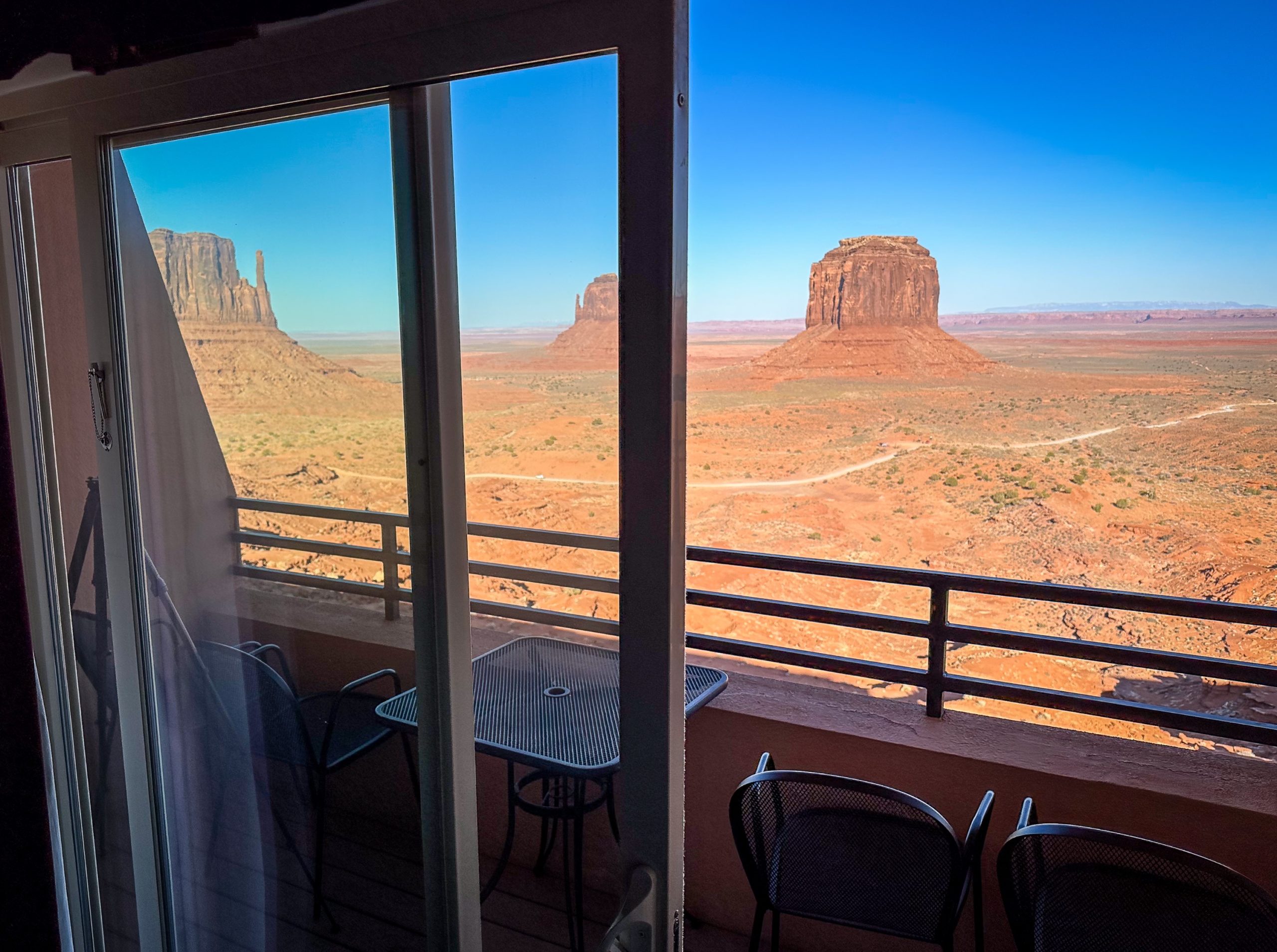Monument Valley and “The View”
As part of a road trip of Arizona in April of 2023 (see the full photo gallery from the trip), we spent two nights in Monument Valley Navajo Tribal Park at the only lodging in the park, the very appropriately named The View Hotel. Strategically positioned and sensibly designed to blend in with the environment, each room features a private balcony that faces east towards an unforgettable classic view of West Mitten Butte, East Mitten Butte and Merrick Butte.

If you ever visit, I highly recommend booking a room – and booking early, because they sell out. Get a top floor room if you want an unobstructed view of the sky for stargazing.
Having a balcony with a view like this is a photographer’s dream and gave me the opportunity for a lot of photography, especially around sunrise and sunset.

With so many photos of the same view at different times, I found it interesting to look back and see how dramatically different the same view can look depending on the time of day and lighting.
About light
Photography literally means “drawing with light.”

Photographers know that the “golden hour” or “magic hour,” along with the “blue hour” (neither of which is actually an hour long), are typically the best times for photography. There are no scientific definitions of golden hour and blue hour, and the time range of each varies by location time of year. Golden hour is the time of red, soft light just after sunrise and just before sunset, while blue hour is just before sunrise and just after sunset.
There are also the concepts of (in order of increasing amount of light) astronomical twilight, nautical twilight, and civil twilight, which do have specific definitions.
Civil twilight: When the sun is 6 degrees below the horizon. At Civil dawn, there is enough light for objects to be distinguishable and outdoor activities to commence. At Civil dusk, objects are distinguishable but there is no longer enough light to perform outdoor activities.
Nautical twilight: When the sun is 12 degrees below the horizon. At Nautical dawn, there is just enough sunlight for objects to be distinguishable. At Nautical dusk, objects are no longer distinguishable.
Astronomical twilight: When the sun is 18 degrees below the horizon. The sky is completely dark prior to Astronomical dawn, at which time the sun starts lightening the sky. At Astronomical dusk, the sun no longer illuminates the sky.
Photos
Below are edited photos taken at different times over two days – all taken from the comfort of our balcony – sequenced in order with the various twilight times and golden/blue hours indicated for reference (the golden/blue hour time ranges are from PhotoPills). Captions indicate the date and time of the photo.
Note that after sunset, there is still some amount of light illuminating the buttes which is picked up by the camera’s sensor, however after astronomical dusk, the buttes are nearly dark (there is still some amount of lighting from man-made sources, including the hotel.)
5:23am – Astronomical dawn

5:55am – Nautical dawn

6:26am – Blue hour begins (Civil dawn)
6:37am – Blue hour ends/Golden hour begins

6:53am – Sunrise


7:28am – Golden hour ends

7:17pm – Golden hour begins

7:50pm – Sunset
8:07pm – Golden hour ends/Blue hour begins

8:17pm – Blue hour ends (Civil dusk)

8:49pm – Nautical dusk

9:21pm – Astronomical dusk

